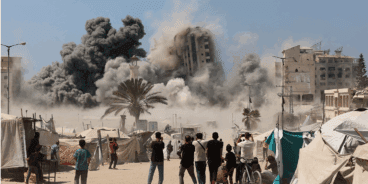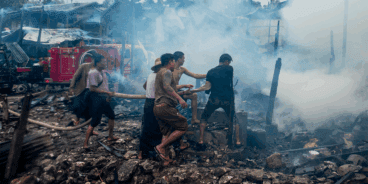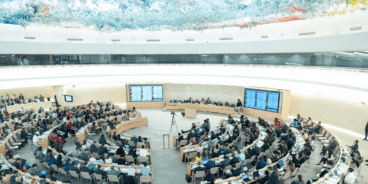Atrocity Alert No. 2: Burundi, South Sudan and Burma/Myanmar
Atrocity Alert is a weekly publication by the Global Centre for the Responsibility to Protect highlighting and updating situations where populations are at risk of, or are enduring, mass atrocity crimes.
Burundi
After one year of conflict, Burundi’s protracted political and human rights crisis has claimed the lives of over 500 people and displaced over 250,000. Extra-judicial killings, arbitrary arrests and detention, enforced disappearances and sexual violence are increasing. The UN Security Council should take decisive preventive action by authorizing a robust UN police presence to halt any further deterioration of the situation.
South Sudan
Following a number of delays, rebel leader Riek Machar returned to Juba on 26 April to be sworn in as First Vice President of South Sudan. The parties to the civil war, including Machar and President Salva Kiir, must now swiftly establish the Transitional Government of National Unity and fully implement the August 2015 peace agreement, including holding accountable those who perpetrated mass atrocities during the civil war.
Burma/Myanmar
Despite Burma/Myanmar holding successful democratic elections in November 2015, rampant discrimination continues against Rohingya Muslims. The new National League for Democracy (NLD) government has shown no sign of reversing decades-long institutionalized persecution of this vulnerable ethnic community, most of whom are also denied citizenship. The NLD cannot build a new, democratic Burma/Myanmar that upholds the human rights of its people without including the Rohingya in its reform process. The government should immediately repeal laws and policies that pose an existential threat to the survival of the Rohingya community.
Read Next

Atrocity Alert No. 453: Israel and the Occupied Palestinian Territory, Afghanistan and Myanmar (Burma)

Atrocity Alert No. 449: Myanmar (Burma), Ukraine and North Korea
